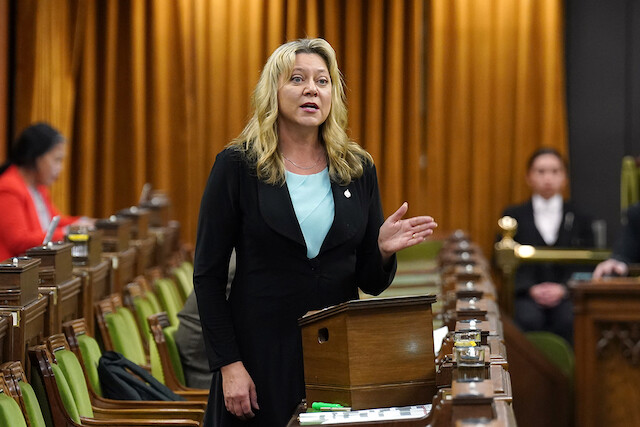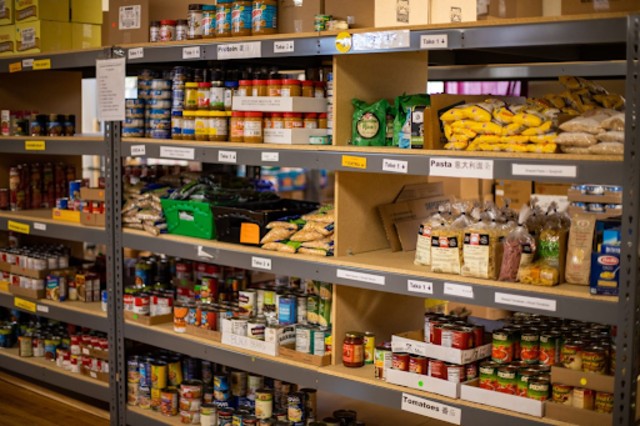
Photo: Parliament of Canada Kelowna-Lake Country MP Tracy Gray
Amidst the pressing issue of affordability in Canada, not-for-profit organizations are facing significant financial challenges. The Central Okanagan Food Bank, for instance, witnessed a surge in demand, setting new records for the number of appointments in January and February, surpassing the capacity of Kelowna’s Prospera Place arena.
During this period, Food Banks B.C. reported a troubling trend: 30% of all food bank users in the province were children, with 20% more seniors seeking assistance. Despite the escalating demand, donations across British Columbia dropped by 30%, exacerbating the strain on these essential services.
The UBC Student Union Okanagan highlighted the prevalence of food insecurity among undergraduate students, with 43% experiencing challenges due to the high cost of living. This underscores the broader impact of the affordability crisis on vulnerable populations.
According to the Canada Food Price Report, the cost of food for a typical family of four is projected to increase by $700 in 2024, further burdening households already struggling to make ends meet.
Second Harvest, Canada's largest food rescue organization, anticipates an 18% rise in demand for food banks nationwide, affecting over a million people. Additionally, the average funding demand per non-profit food program has surged by 13% compared to last year.
Disturbingly, reports have surfaced of a Facebook group called the Dumpster Diving Network, where 8,000 Canadians exchange tips on finding food in dumpsters due to financial constraints. Such accounts underscore the dire circumstances faced by many Canadians amidst the affordability crisis.
A significant contributing factor to the rising cost of living is the federal carbon tax, set by the Liberal government. Scheduled to increase by 23% on April 1, the tax hike will impact various sectors of the economy, including agriculture, transportation, and retail.
The federal government's plan to quadruple the carbon tax by 2030 has sparked widespread concern among Canadians. Notably, residents and small businesses are already grappling with the financial burden of escalating carbon tax rates.
Conservative MPs have sought to halt the planned tax hike, garnering support from seven provincial governments and the majority of Canadians. However, the motion to cancel the increase was rejected by Liberal, NDP, and Bloc Quebecois MPs, prolonging the financial strain on Canadian households and businesses.
Critics argue that the carbon tax not only exacerbates the affordability crisis but also fails to effectively address climate change. Canada's ranking on the Climate Change Performance Index has plummeted, reflecting shortcomings in the country's climate policies.
Despite these challenges, communities like Kelowna-Lake Country have demonstrated resilience and generosity in supporting those in need. Local volunteers play a crucial role in sustaining not-for-profit organizations, showcasing the spirit of compassion and solidarity within the community.
In Ottawa, Conservative representatives continue to advocate for measures to alleviate the financial burden on Canadians, including ending the federal carbon tax.















